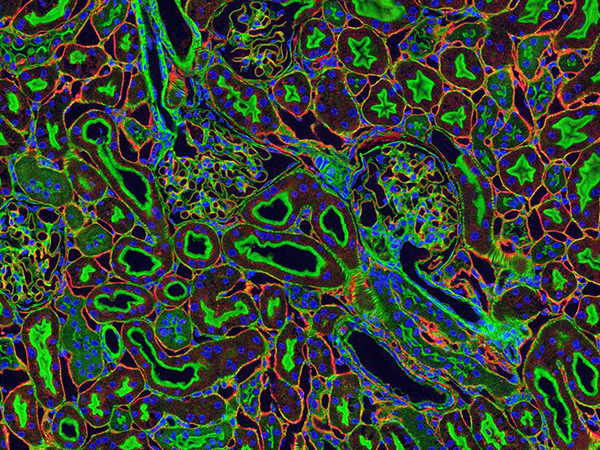Combining Immunotherapy for Kidney Cancer
The FDA has approved a combination of ipilimumab and nivolumab for treating intermediate- or poor-risk, previously untreated advanced renal cell carcinoma

The U.S. Food and Drug Administration (FDA) recently approved a combination of the immunotherapeutics ipilimumab (Yervoy) and nivolumab (Opdivo) for treating certain patients newly diagnosed with advanced renal cell carcinoma, the most common form of kidney cancer.
Specifically, the ipilimumab?nivolumab combination is intended for the treatment of intermediate- or poor-risk, previously untreated advanced renal cell carcinoma.
Kidney cancer is the eighth most commonly diagnosed cancer in the United States, according to data from the National Cancer Institute’s Surveillance, Epidemiology, and End Results Program. There are expected to be 65,340 new cases in the United States this year alone. Patients with metastatic kidney cancer have a particularly poor prognosis; the five-year relative survival rate for this form of the disease is just 11.6 percent.
Renal cell carcinoma accounts for about 90 percent of kidney cancers. Many patients newly diagnosed with metastatic renal cell carcinoma are first treated with one of several FDA-approved molecularly targeted therapeutics called multi-kinase inhibitors; one of the most commonly used of these therapeutics is sunitinib (Sutent).
The likely prognosis of patients in this situation can be predicted depending on the presence of certain risk factors, such as anemia, hypercalcemia, neutrophilia, and thrombocytosis. One prediction model classifies patients based on the presence or absence of six factors. Those who have no risk factors are classified as favorable risk, those with one or two factors as intermediate risk, and those with more than three factors as poor risk groups.
The approval of the ipilimumab and nivolumab combination for intermediate- or poor-risk, previously untreated advanced renal cell carcinoma was based on results from the CheckMate 214 randomized phase III clinical trial, which were published recently in The New England Journal of Medicine. In short, patients who received the combination had significantly improved overall survival rates compared with those who received sunitinib. After a median follow-up of 25.2 months, the 18-month survival rate was 77 percent for the immunotherapy combination group compared with 60 percent for the sunitinib group.
The overall response rate, which is the proportion of patients who had complete or partial tumor shrinkage, was also significantly higher among those who received the ipilimumab and nivolumab combination compared with those who received sunitinib; it was 41.6 percent compared with 26.5 percent.
Ipilimumab and nivolumab work by releasing two different brakes on natural cancer-fighting cells of the immune system, CTLA4 and PD1, respectively. They were approved in combination for treating certain patients with metastatic melanoma in September 2015.
This article was adapted with permission from a post on the AACR’s official blog, CANCER RESEARCH Catalyst. The FDA approval was rendered on April 16, 2018. Find out more about the decision on the FDA website.